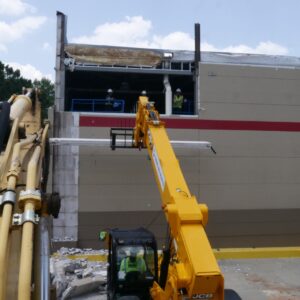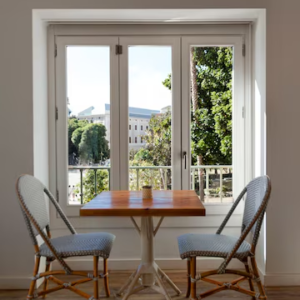The rope that runs up the mast to pull up a sail and brings it back down is called the halyard. The lines that control the sails are called sheets and each sheet will refer to the particular sail it controls – a mainsail, jib, triangular jib, or code zero.
Double Braided Polyester
Double-braid polyester is one of the most popular choices for cruising sailboat halyard ropes. The 24-strand polyester sheath(cover) over a 12-strand core gives this rope great strength and durability while resisting UV degradation from sunlight.
Another popular choice for sailboat halyard ropes is Polyester (Dacron). It is similar to nylon in strength and UV resistance but has less stretch.
This low-stretch, soft, pliable polyester line has a smooth, supple feel. It is also highly resistant to abrasion and UV damage.
HMPE fibers have become popular very quickly, particularly Dyneema(r) and Spectra(r). It is the most popular fiber amongst critical recreational sailors and has excellent strength and low stretch.
12 Strand Polyester
Sailboat halyard ropes are an essential part of sailing and are available in various materials from leading manufacturers. West Coast Sailing stocks a wide range of lines for common applications, including control lines for Laser vangs and jib sheets for J24s, along with high-strength low stretch rigging lines for performance sailing.
Polyester (Dacron): For decades, polyester has been the go-to fiber for cruising-boat halyards and sheets, providing cost-efficiency while also being strong and resisting ultraviolet radiation. It’s usually combined with other high-tech fibers, such as Dyneema and Spectra, to add strength and performance features.
Polyester rig ropes are easy to grip in clam cleats and are ideal for running rigging on sailboats. They can be coiled and trimmed into lengths for easy handling and storage. They’re also available in a variety of colors and sizes and can be spliced to fit. They’re also great for use with spinnaker sheets. The downside is that they tend to lose their strength over time, and they’re not as abrasion-resistant as a high-tech line.
Nylon
Nylon is one of the most common materials used in sailboat halyard ropes. It is a strong, stretchy line that is resistant to UV deterioration. It can be spliced and is available in many sizes.
It also floats on water. It is often mixed with other fibers to give it additional properties.
A popular choice for cruising sailors, polyester has low elasticity and does not stretch as much as modern fibers like Dyneema(r). It is cost-efficient, strong, and resists UV deterioration.
It is important to keep your halyard rope in good condition, as it spends a lot of time exposed to sunlight. Routine inspections and replacing the splice should help prevent it from failing prematurely. It is a good idea to soak it in warm fresh water and wash it once in a while. This helps to make the rope more supple and eliminate squeaking.
Polypropylene
If you’re running a sailboat, you want the ropes used on your main sheet and spin sheet to be durable. These lines will be subjected to many forces from the winches, and they need to be able to handle it.
For this reason, you should consider double-braided polyester halyard ropes as the best choice for your boat. They’re inexpensive, durable, and provide a low stretch for easy handling.
Polypropylene (also known as “dacron”) is another good choice for cruising boats. This synthetic fiber is similar to nylon in strength and UV resistance but stretches less.
This line is also useful when spliced into double-braided halyards to add UV protection. It’s a great choice for rigging control lines, sheets, and other applications on cruising sailboats.





